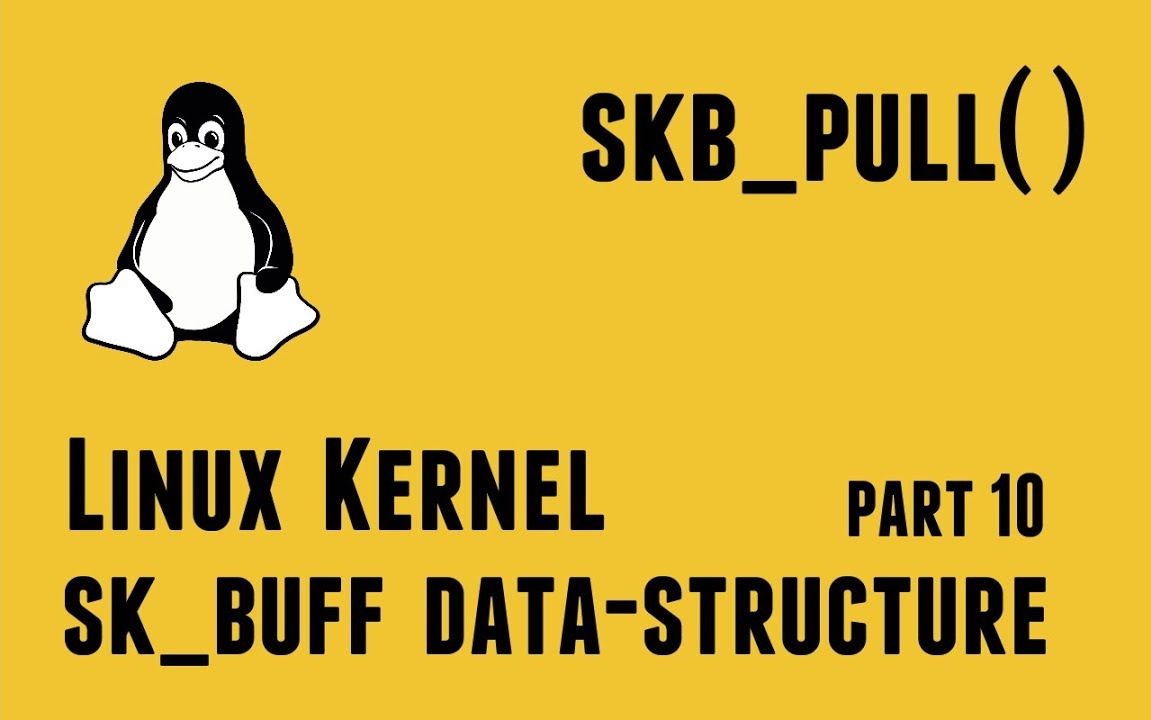Refer:
skb_pull() – remove data from the start of a buffer ↗
Here is the copy paste of skb_pull() API (/net/core/skbuff.c) from the Kernel-source version 6.5.8 for quick reference:
/**
* skb_pull - remove data from the start of a buffer
* @skb: buffer to use
* @len: amount of data to remove
*
* This function removes data from the start of a buffer, returning
* the memory to the headroom. A pointer to the next data in the buffer
* is returned. Once the data has been pulled future pushes will overwrite
* the old data.
*/
void *skb_pull(struct sk_buff *skb, unsigned int len)
{
return skb_pull_inline(skb, len);
}
EXPORT_SYMBOL(skb_pull);Which points to skb_pull_inline() as you can see above, and if we trace, we get the implementation in /include/linux/skbuff.h. skb_pull_inline() internally calls __skb_pull() wrapper API which has the real implementation of the same. And just above the same you can also see the skb_pull() function prototype.
void *skb_pull(struct sk_buff *skb, unsigned int len);
static inline void *__skb_pull(struct sk_buff *skb, unsigned int len)
{
skb->len -= len;
if (unlikely(skb->len < skb->data_len)) {
#if defined(CONFIG_DEBUG_NET)
skb->len += len;
pr_err("__skb_pull(len=%u)\n", len);
skb_dump(KERN_ERR, skb, false);
#endif
BUG();
}
return skb->data += len;
}
static inline void *skb_pull_inline(struct sk_buff *skb, unsigned int len)
{
return unlikely(len > skb->len) ? NULL : __skb_pull(skb, len);
}